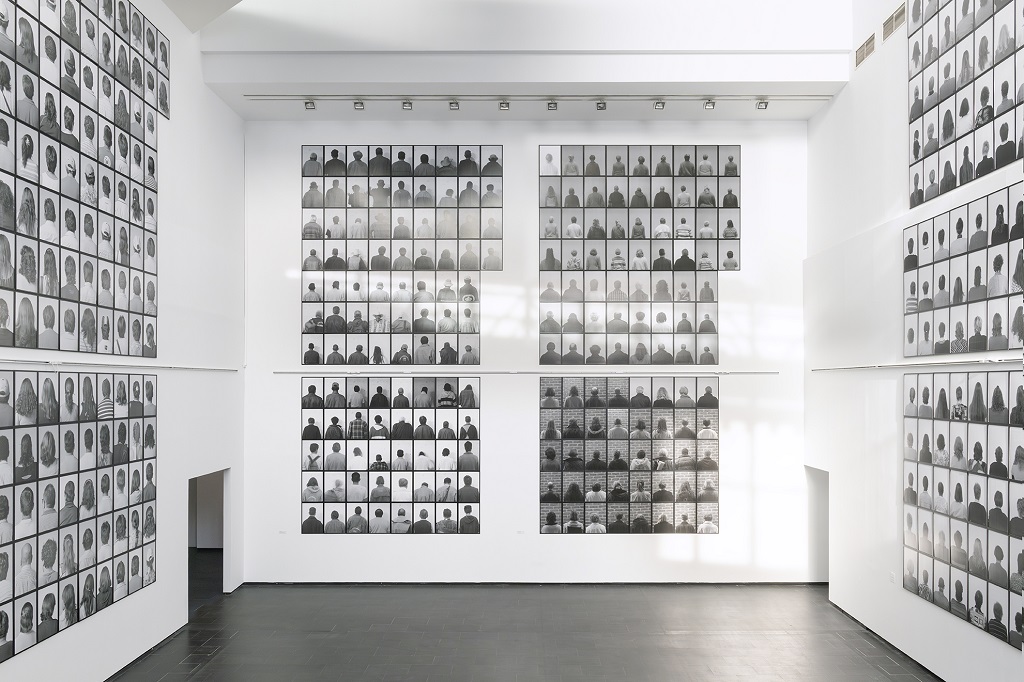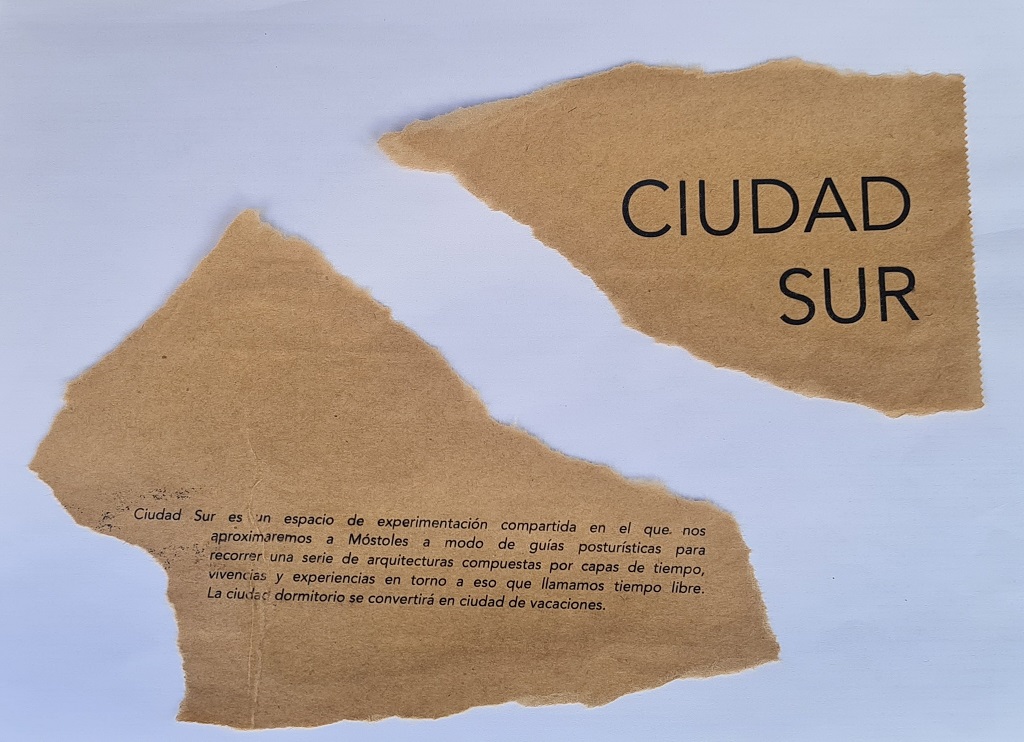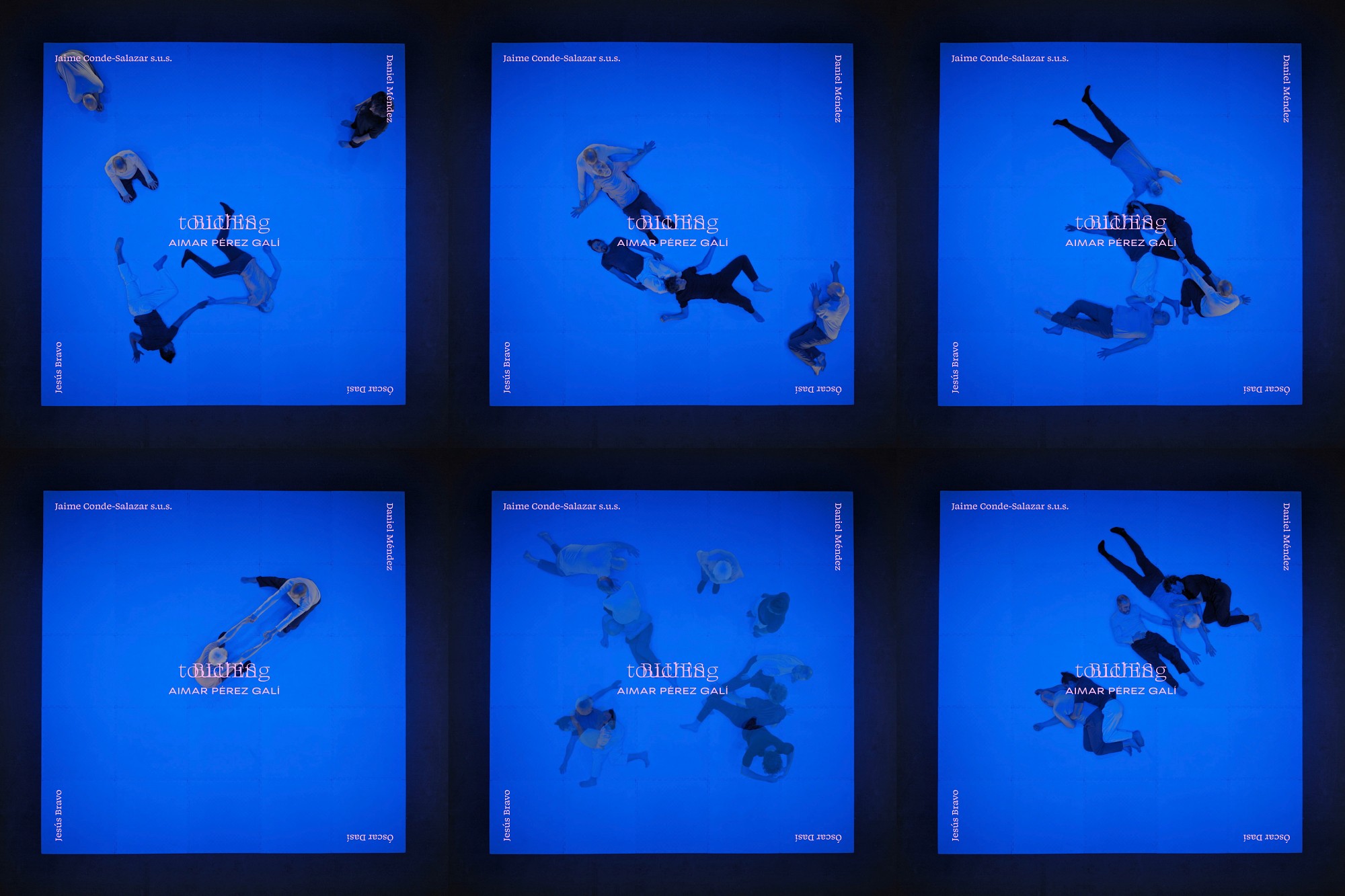The book 1502 Persons Facing the Wall is the outcome of the research and work undertaken around the Santiago Sierra exhibition being held at the CA2M museum until 2 February 2025. This publication brings together images of Sierra’s characteristic ‘inverse’ portraits and finds resonance in the profound, insightful texts by Alexis Callado, Rosa Martínez, Georg Imdahl, Juan Albarrán, José Luis Corazón, Pilar Villela and Gonzalo Abaha. The book immerses us in a striking picture of the artist and the questions he asks about power and its effects. The publication not only documents the exhibition but also becomes a tool of reflection on the networks shaping our realities.
The activity will feature Carlos TMori (designer), Juan Albarrán (author of one of the texts), Sandra Guimaraes (director of the Helga de Alvear Museum), Alexis Callado (exhibition curator) and Tania Pardo (director of the CA2M Museum).
The ‘Variation 90’ sound activity, directed by Ugo Martínez Lázaro, will be held after the launch. In this piece, the artist aims to manifest and allegorically question forms of social domination and alienation by evoking purification rituals that combine creativity and community resistance. Four experimental musicians take part acoustically in the space for forty minutes to explore the conceptual tensions in Sierra’s work. This collective event will feature Ugo Martínez, Arianna Cana Mackenzie, Doris Steinbichler and Narcoléptica.
Carlos TMori is a graphic designer of publications, visual artist, contemporary art curator and associate professor in the Bachelor’s in Fine Arts at the University of Salamanca. He has a PhD in Fine Arts and two bachelor’s degrees in Fine Arts and Audiovisual Communication. As a graphic designer, he has worked for companies like una más una and La Fábrica and for cultural institutions like the Ministry of Culture, the Foreign Ministry, the DA2 Art Centre, the Conde Duque Contemporary Culture Centre and the MUSAC and Es Baluard museums.
Juan Albarrán is a professor in the Department of Art History and Theory at the Autonomous University of Madrid. His lines of research revolve around contemporary artistic practices and discourses, especially the relationships between art and politics in Spain since the transition to democracy, theories of photography and performance, and representations of torture in contemporary visual culture. He has published the books Disputas sobre lo contemporáneo. Arte español entre el antifranquismo y la postmodernidad (2019) and Performance y arte contemporáneo. Discursos, prácticas, problemas (2019) on these issues, and he has edited the collectively-written volumes Arte y transición (2012 and 2018), Llámalo Performance: historia, disciplina y recepción (with Iñaki Estella, 2015) and Ensayo/Error. Tentativas interartísticas en el Estado español (with Rosa Benéitez, 2018).
Alexis Callado has a degree in Art History from the University of Havana. His curatorial practice includes solo exhibitions with Carlos Pazos (La Casa Encendida, Madrid; Centro de Desarrollo de las Artes Visuales, Havana), as well as group exhibitions (Ante nuestros ojos, Loop Festival, Barcelona; Culto Digestivo, Conarte, Monterey) and collaborative projects like Lab Latino, Eighteenth Arte Paiz Biennial, Quetzaltenango, Guatemala. He is an active promoter of exchanges between the Spanish and Latin American art scenes. He helped to choose, coordinate and produce publishing projects in graphic art, photography and sculptural objects for the company Arte y Naturaleza of Madrid. He has organised artistic projects in Sweden, Spain, France, Guatemala, Mexico, Argentina, Chile and Cuba. He partners with publications, museums, associations and centres specialised in contemporary art. He is a member of the Transatlantic Network and is a co-founder of The Curatorial Bureau.
Tania Pardo is the director of the Museo Centro de Arte Dos de Mayo of the Community of Madrid. She was the Fine Arts advisor of the Community of Madrid until July 2019. Before that, she was in charge of the Exhibition Department at Madrid’s La Casa Encendida. She has also served as a curator at MUSAC, Contemporary Art Museum of Castilla y León, and as the head of programming in the Laboratorio 987 space. She has been the director of projects at the Fundación Santander 2016 (2009–2010) and associate professor of Art History at the Complutense University of Madrid. She has recently curated the Cristina Garrido show The Origin of Forms at the CA2M Museum, and Bird Machine Dream by Teresa Solar Abboud at the same museum along with Claudia Segura in a co-production with MACBA and the Fondazione Sandretto Re Rebaudengo in Turin.
Sandra Guimarães (Oporto) is the director of the Helga de Alvear Museum in Cáceres. Her career in the visual arts spans around twenty years and includes posts like the Artistic Director of the Bombas Gens Centre d’Art (Valencia) between 2020 and 2023. Guimarães was the curator of the Serralves Museum (Oporto, Portugal) between 1998 and 2010 and the founding director of programmes at the Remai Modern (Saskatoon, Canada) between 2015 and 2019. At Serralves, she organised exhibitions of contemporary artists like Alvess, Artur Barrio, Thomas Hirschhorn, Cristina Iglesias, Barry Le Va and Dan Graham, among others, and co-curated the exhibition The 80’s. At the Remai Modern, she co-curated the programme prior to the museum’s opening, as well as its inaugural exhibition, Field Guide. Her training includes a master’s in Art History and Archaeology (specialisation in Modern and Contemporary Art) and a master’s in Cultural Management, both from the Université Libre de Bruxelles (Belgium).
Ugo Martínez Lázaro merges art and the social sciences with an experimental approach to sound and music. He combines documentary research, texts, music and on-the-ground experiences in projects involving comics, installations and sound art. He co-directs Pirotecnia, a trans-disciplinary improvisation ensemble, which issued an LP with the Madrid Town Hall in 2022, a limited edition of 300 hand-painted records, including a comic he designed, which is available in Madrid and Mexico.
Arianna Cana Mackenzie is a Cuban musician and producer living in Spain. She plays multiple instruments, like the clarinet, the saxophone and the flute. She started studying clarinet at the age of ten in Camagüey and continued at the National Music School and Art College of Havana, where she has also taught. She has worked with the Camagüey Symphony and the ICRT. She conducted the Limpopo Youth Orchestra in South Africa, where she explored Afro-Cuban folklore in Europe, Africa and the Caribbean.
Narcoléptica is the alias of Beatriz Vaca (Seville, 1985), who holds a bachelor’s in Fine Arts and is a self-taught musician. She has been creating experimental electro-acoustic music influenced by psychodelia, ambient music, noise and post-rock since 2006. She processes electric guitar, piano, synthesisers and voice to generate exciting sound experiences. She has issued her own records, contributed to soundtracks and performance pieces and stood out on tours around Europe and Latin America with powerful live presentations.
Doris Steinbichler (Vienna, 1965) is a vocal improvisational artist and creator of transmedia performances in Austria and Mexico. She has won awards in Mexico in performance and radio and has founded projects like ‘Remediar’, ‘Trinchera Ensemble’ and ‘4shrooms’. Her works explore vocal experimentation and multimedia and have been presented at important museums and festivals. In 2023, she celebrated thirty years of her career at Ex Teresa Arte Actual (CdMX), reaffirming her contribution to transdisciplinary art.
Presentation of the book on the occasion of the exhibition 1502 people face to the wall by Santiago Sierra, with the presence of Carlos TMori, Juan Albarrán, Sandra Guimaraes, Alexis Callado and Tania Pardo. After the presentation, we will have the sound activation ‘Variación 90’, directed by Ugo Martínez Lázaro and featuring Arianna Cana Mackenzie, Narcoléptica and Doris Steinbichler.

Picture: Roberto Ruiz. © Santiago Sierra. VEGAP, Madrid, 2024.


